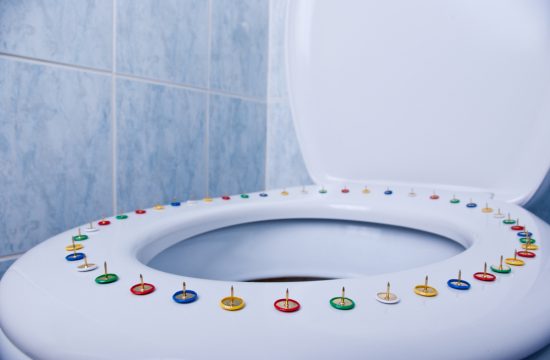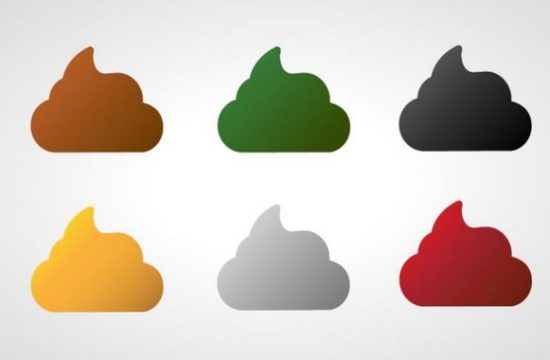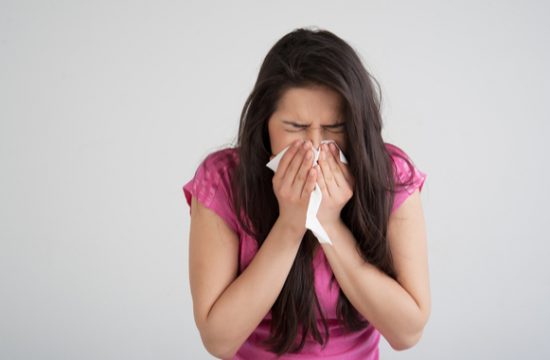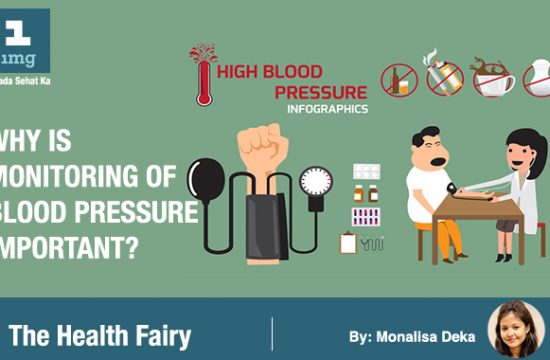What is a bruise?
Do you remember the last time you accidentally bumped your knee/foot into the corner of the bed or maybe your hand came in between while you were closing the door? What happened after that? Short, intense pain followed by some swelling and the affected area turning into a bluish-purplish patch? That patch is nothing but a bruise/contusion, which results when tiny blood vessels, also known as capillaries, rupture or break underneath.
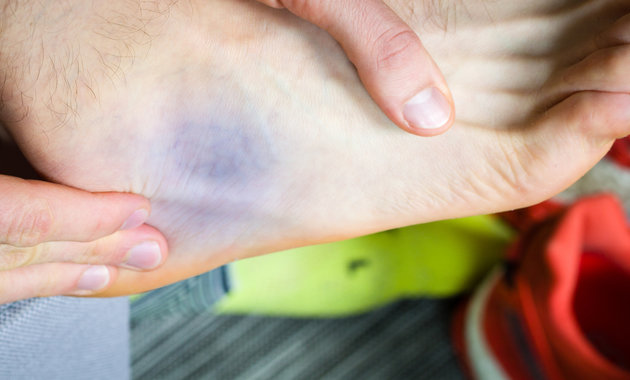
Bruises can be caused by several reasons, but usually associated with trauma. There is no particular age of getting a bruise. If you are blessed with an active kid, bruises on his/her body must be a common finding for you every other day. These patches are even common in elderly individuals; the reason behind this is due to progression age, the skin becomes thinner and the tissue underneath is more fragile. Bruises are also more commonly seen in people with a fair complexion for obvious reasons, but this does not mean dark complexion people do not get bruises; their skin colour just hides it.

How do we get bruises?
Anything that causes the blood vessels to get injured and result in the collection of blood beneath the skin results in a bruise.
- Athletes, weightlifters are common people who get bruises. Due to vigorous exercise, microscopic tears (not visible by a naked eye) are caused in blood vessels under the skin that are seen as bluish-purple patches, mainly on the upper chest
- region, area around the armpits, shoulders, etc.

- People who suffer from frequent nosebleeds or a bleeding disorder may also be the victims of bruises.
- Sun-damaged and relatively thin skin can also be a cause of bruises.
- People with vitamin C deficiency often complain of getting bruises even after minor trauma.
- Alcohol or substance abuse can also be a significant reason behind getting frequent bruises, as after consuming drugs and/alcohol, the brain slows down and the person gradually loses control over his actions.
- Medicines such as aspirin, ibuprofen, warfarin, steroids, and etc. can lead to bruises easily. People with bleeding disorders or those who are on cancer therapy are the ones who are commonly prescribed these medicines.
-
Individuals with varicose veins usually suffer from bruises that are bluish-black in colour. However, development of a blood clot, such as in cases of deep vein thrombosis, can be a bruise that looks black in colour. This can be life-threatening and requires proper medical attention.

Checklist of symptoms associated with bruises
Symptoms associated with a bruise depend on the underlying cause. Discoloration of the skin is often the first and foremost symptom. Other symptoms include:

- Pain (usually mild-to-moderate in the beginning that gradually turns to mild, especially on touching the bruised area) and tenderness.
Severe symptoms that might necessitate medical attention include:
- Increased bruising followed by spontaneous bleeding
- Bruising caused by a hard blow or fall
- Bruising that does not heal even after a month
- Bruising under your nails that is extremely painful
- Bruising followed by bleeding from your gums, nose, or mouth
- Bruising followed by blood in your urine, stool, or eyes
- Recurring unexplained bruising
Why does bruise change its colour?
You may be surprised to see that you have a bruise that is somewhat blue-purple in colour, while your friend has a similar looking patch on his elbow but it looks greenish. You might be wondering about that greenish patch. Like yours, even that is a bruise but it is in its healing stage. From the time when you freshly get a bruise to when it is almost gone, there are different phases of healing that a bruise goes through:

- First, you’ll probably have a bump that will look red or purplish and tender. The bump might swell from the blood collecting under the tissue.
- After a couple of days, the bruise will look blue or even blackish.
- After 5 to 10 days, it may look greenish or even yellow.
- After 10 to 14 days, the bruise will most likely be a light brown and then gets lighter and lighter as it fades away.
Most bruises usually disappear after 2 weeks, and some go away even sooner. However, if a bruise does not go away after 2 to 3 weeks, make sure you seek medical attention in time.
Do you have a tendency to get frequent bruises?
Seeing a doctor in order to find out what’s going on inside your body that is leading to frequent bruises is always a good idea.
Once you visit a doctor, you may be advised a number of tests. But before this, the doctor takes a thorough medical history that usually involves asking about your past episodes of bruises, if any, medicines you are taking or have taken in the recent times, any symptoms besides bruising. The doctor might even ask you about the medical history of your closest relatives.
After this, a physical examination is carried out that involves examining your body from head to toe, and taking note of any bruises on your body. The doctor may be looking at the quality of your skin, to check for paleness, and/or elasticity of the skin. He/she will also look for any lumps beneath your bruises.
After performing the physical examination, the doctor may advise you a few tests depending upon the condition and what he is suspecting to be the reason behind those frequent bruises.
These tests may include:
- Blood tests
- Specific blood-clotting test
- Bone marrow biopsy
The treatment of bruises totally depends upon your diagnosis. Apart from the treatment what the doctor decides, there are many things you can do to manage and get rid of bruises.
How to get rid of bruises?
There are a lot of natural ways with which you can manage and even get rid of bruises at home:
1. Ice therapy:

Applying an ice bag, or a reusable ice bag immediately after the injury helps in reducing blood flow around the area. Cooling the blood vessels decreases the amount of blood that leaks into the surrounding tissue. It is advisable to apply ice on the bruise for 10 minutes at a time and then wait for 20 minutes before reapplying. Avoid applying direct ice to the bruised area as it can lead to frostbite.It’s advisable to add a layer of cloth if applying direct ice.
2. Elevate the affected area:

When you elevate the bruised region above the heart level, it helps in relieving pain and in draining fluid away from the bruised region.
3. Compression:

Cover the affected area with an elastic bandage/cotton cloth in a way that it squeezes the tissues and helps to prevent blood to ooze out from the vessels.
4. Use heat pads:
After 24 hours of applying ice, use a warm compress or a hot water bottle and apply heat to the bruised area, but not for more than 20 minutes at a time. This will help in reducing the pain and also aids in loosening tense muscles.

5. Rest the muscles in the bruised area:
Do not overstrain your muscles; they are already in pain. Give your muscles a break after you get a bruise to allow them to heal properly.
6. Take an analgesic:
Paracetamol/acetaminophen although will not heal your bruise, it will significantly minimize the pain associated with it. This doesn’t mean you will take it daily or whenever you start feeling the pain. Visiting a doctor is necessary if the bruise and associated pain persist for longer than normal.

7. Arnica gel:
This is a well-known homoeopathic herb that helps in reducing the rate of infection and swelling associated with a bruise. This plant-based gel is easily available in the drug stores. Apply this gel twice or thrice daily to get rid of bruises.
8. Comfrey:
This is another plant-based topical medicine that can be applied to the bruised area. Comfrey has excellent healing properties. Apply this cream on the bruise few times a day in order to get rid of bruises.
9. Aloe vera gel:

Aloe vera is famous for its anti-inflammatory properties. Apply this gel and massage gently on the affected area. This will significantly relieve pain and redness caused by a bruise. However, make sure to check a number of additives added to this gel; some cosmetic-based aloe vera gels may cause irritation to the skin.
10. Vitamin K creams:

Vitamin K helps in making the blood clot. Applying a cream that contains Vitamin K, at least twice a day, might be beneficial in reducing the severity of bruising and getting rid of it eventually.
11. Vitamin C gels, creams:
Vitamin C has anti-healing, therefore, topical application of Vitamin C, either in the form of a gel or a cream, can help in reducing the inflammation in and around the bruise. Not just this, eat a diet rich in Vitamin C.
12. Dietary changes:
Consume a good amount of Vitamin K-rich food items such as broccoli, sprouts, and also flavonoids such as seeds, dry fruits, carrot, etc. These dietary changes will help you in getting rid of bruises.

13. Supplement your diet with a multivitamin tablet once daily:
This will not only help your bruise to heal faster but will also complete your daily vitamin intake.
14. Vinegar mixed with warm water:
Applying this mixture can help in facilitating blood flow near the skin’s surface and dissipating the blood that has pooled in the bruise region. This will help you get rid of the bruise gradually.
Follow these easy and effective home remedies to get rid of bruises/contusion!
573 total views, 1 views today



